Blog Layout
New City Dwellers Benefit From Passive Car Alarms With Paging
Admin • November 18, 2018
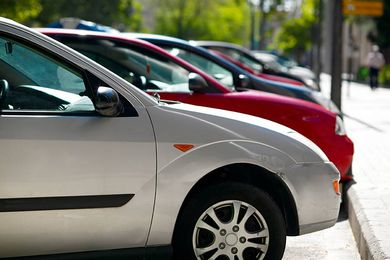
Car alarm systems are essential for anybody moving to a big city. However, some people may struggle to find the alarm system that suits their car. Some individuals may want an active unit while others may prefer a passive system. However, anyone moving to the big city for the first time will massively benefit from a passive alarm system.
In fact, individuals moving to a more urban environment may also want to install a two-way paging system alongside their passive alarm. Individuals who add a paging system vastly improve the quality of their alarm and more effectively protect it from theft.
Benefits of a Passive Car Alarm
Some car owners assume that an active car alarm system is superior to a passive system. However, the truth about passive car alarms is that they provide many benefits that drivers don't get with active systems. For example, people who often forget to turn their alarm system will appreciate the automatic activation and deactivation of a passive alarm system.
In fact, each passive car alarm includes a microchip installed directly into a car's key. Whenever a person locks a vehicle after leaving it, the passive car alarm will automatically activate the system. Likewise, the moment a person unlocks a car, the microchip will deactivate the alarm. As a result, drivers never have to activate their alarm separately.
Just as importantly, passive alarm systems provide other benefits for a car's safety. For example, passive alarm systems will disable the ignition of a vehicle if somebody tries to use a key that doesn't have a microchip. Just as importantly, some passive alarm systems will lock the wheels if somebody breaks into the car.
Drawbacks of a Passive Car Alarm
While passive car alarms provide many benefits to car owners, drawbacks do exist. For example, passive alarm systems may malfunction if a car's computer system shorts out. When the computer shorts out, the passive alarm may deactivate or activate randomly and make the car impossible to start.
Passive car alarms are also harder to turn off in some instances than active systems. For example, if a baseball breaks the window of a car protected by an active alarm, merely pushing the deactivation button will turn it off. With passive car alarms, the alarm may continue to go off until the key with the microchip is inserted into the ignition of the vehicle.
Reasons to Add a Two-Way Paging System
Two-way paging systems are a unique addition to a passive car alarm system. These units provide a communication method between the alarm system and the car owner's key fob. When something goes wrong with a car, such as a broken window, the exact problem will be communicated to the car owner using a small screen on the fob.
The benefits of a two-way paging system on a passive car alarm are huge. For example, most paging systems provide coverage for up to a mile, which provides the driver with a higher degree of protection in a dense city population. Just as importantly, the fob can let the driver assess the problem and deactivate the alarm as needed to keep the car safe.
Influences on Your Car Insurance
When a car owner adds a passive car alarm and a two-way paging system to their vehicle, they offset insurance increases they may experience when they move to the city. Often, insurance companies increase an owner's rates if they move to a large city. These companies argue that bigger cities are more prone to crime and that higher prices are appropriate.
However, a passive system paired with a two-way paging unit is likely to decrease a person's insurance rate. Insurance providers understand the theft-prevention power of passive alarms. Therefore, insurance companies often reduce a person's premium due to the presence of the system.
Don't hesitate to contact
X-Pert Tint and Auto Alarms to learn more about these units.
By Admin
•
October 1, 2019
Many drivers prefer a nuanced experience with the audio in their car. An aftermarket car audio system can enhance that experience. Use these tips.
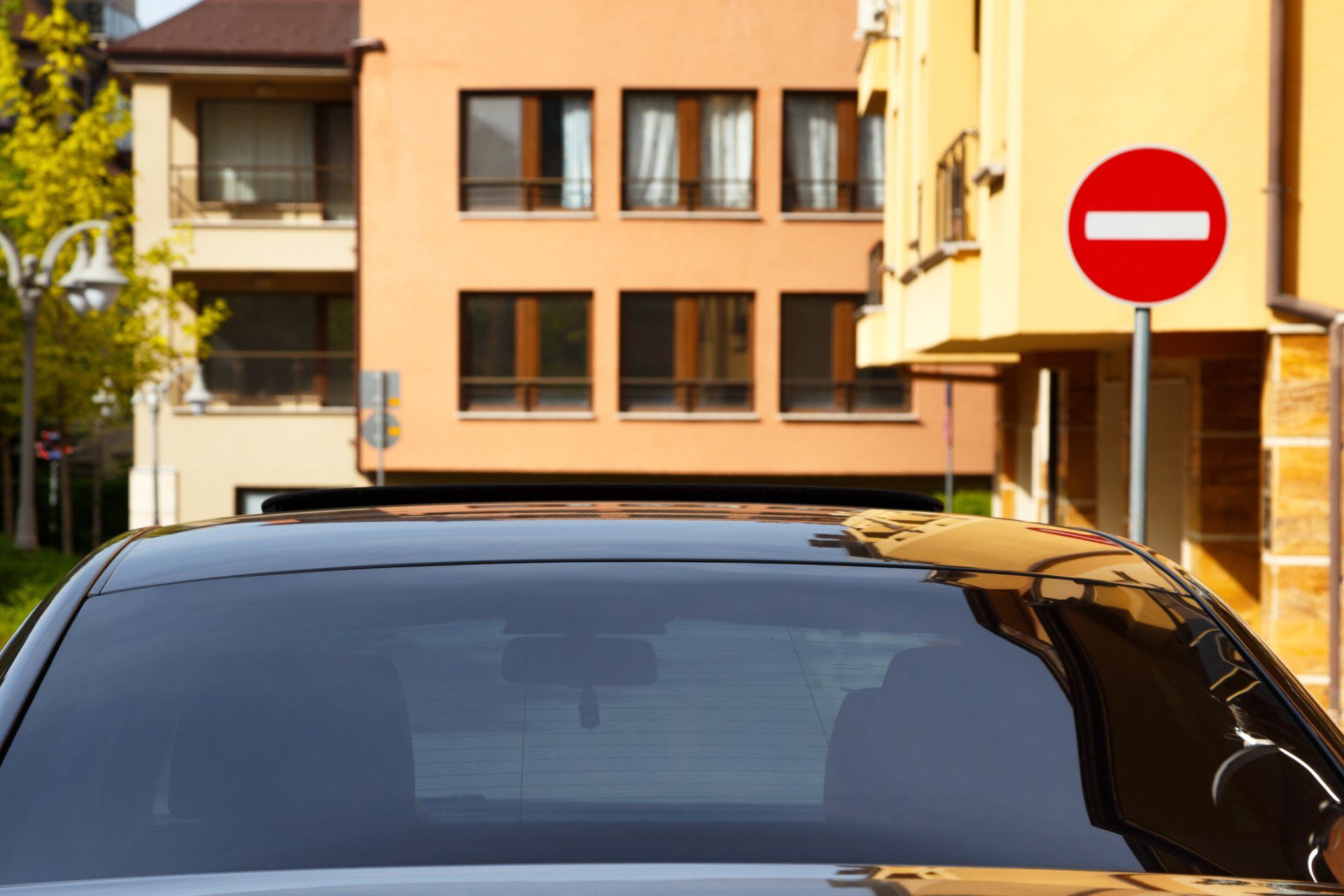
By Admin
•
September 2, 2019
If you live in hot, sunny Texas, you probably put on a quick coat of sunscreen before you head outside to do yard work or visit the pool on a hot summer day. But what about when you get in the car? Do you put on sunscreen then? For most of us, the answer is an obvious no-but if you're trying to limit your sun exposure, being in the car isn't all that better than standing outside under the full sunlight. While windshields are manufactured to reduce UV light, sunroofs and side windows aren't, and all that sun exposure takes a toll. In fact, according to the Skin Cancer Foundation, skin cancer in the US is more common on the left side (or driver's side) of the body, and the Foundation doesn't think that's a coincidence. Want to protect your skin from harmful rays while you're driving? Read on for some useful tips that can help you and your family stay safe on your next major road trip. 1. Wear Sunscreen It might seem odd to cover your face and arms with sunscreen before you embark on a road trip, but sunscreen remains the best way to protect your skin from the sun-including while you're in the car. If you don't fancy driving several hours while covered in the greasy, sticky sunscreen you use at the pool, you're not alone, which is why lots of companies now include sunscreen in cosmetic or skincare products like foundation. The most important part of choosing a sunscreen brand is its SPF, or sun protection factor. Don't get sunscreen with an SPF under 15, and make sure to keep some in the car so you can reapply throughout the day. 2. Get High-Quality Sunglasses Your skin isn't the only part of your body susceptible to sun damage. Your eyes can actually get sunburned too, and too much sun exposure increases your chance of permanent vision damage. Before you set off on a long drive, find a high-quality pair of sunglasses that protects you from both types of harmful ultraviolet light, or UVA and UVB rays. Make sure everyone in your car wears protective sunglasses, not just the driver; kids looking out the window can be sunburned, too. 3. Consider Window Tinting Automobile window tinting is often considered an upgrade that boosts your car's resale value and protects the interior from sun damage. But window tinting is about more than just looks; depending on the tint you choose, it can also reduce UV rays, keeping the car cooler and your skin safer while you drive. Of course, not all window tints are created equal. They come in different shades and have different SPFs. If you decide to tint your windows, make sure to find a shade that filters out both UVA and UVB light. Luckily, most glass does reduce UVB, and your windshield was probably also treated to reduce UVA lights. But the other windows don't have any UVA filtering, so if you frequently travel with passengers in the backseat, look into window tinting for UVA-specific window tints. Don't forget that window tinting doesn't work when the windows are down, which goes double for the sunroof. It might feel nice to have the wind whipping through your hair, but don't let your new window tint job go to waste by driving with the top down all summer long. Make Your Next Road Trip a Success Going on a road trip should be a fun getaway, not a threat to your skin and safety. Apply these three tips before your next vacation to keep everyone cool, happy, and healthy while you drive. Live near Houston? Looking for some extra sun protection for your car? X-Pert Tint and Auto Alarms can install the perfect window tint for your car. Get in touch to explore your tinting options.
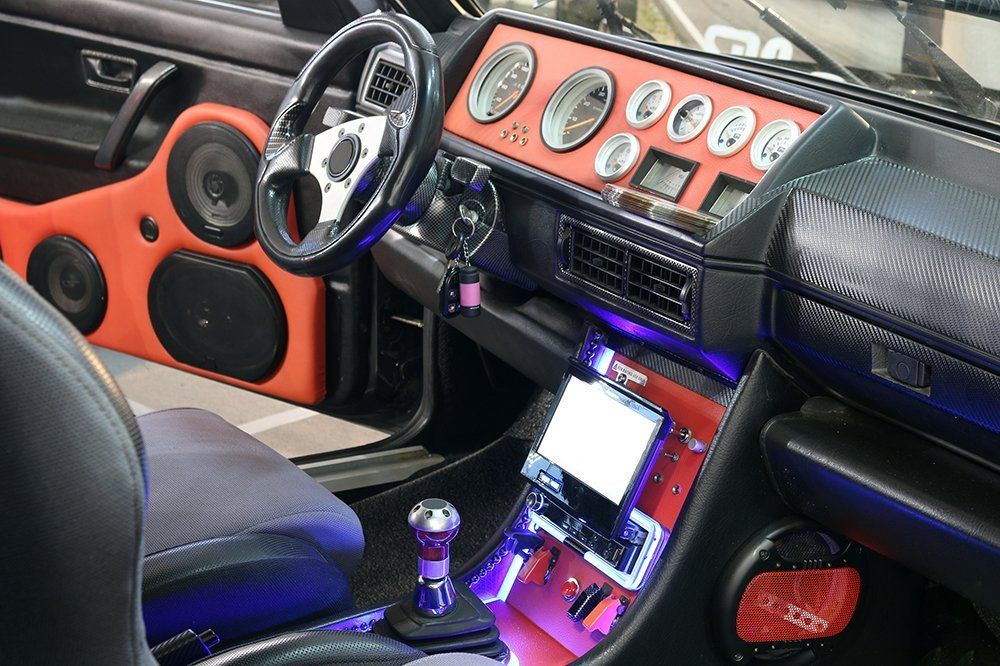
By Admin
•
July 8, 2019
If you're purchasing a custom car stereo, you undoubtedly have lots of questions to ask about the stereo itself. You shouldn't be focused solely on the stereo, however. A number of questions listed below are related to peripheral matters that you should also consider before having a custom car stereo installed. Does Your Car Have a Security System? A custom stereo increases the value of your car, and that inherently makes it more attractive to thieves. Some thieves may even target your car's custom stereo itself, hoping to break in and steal stereo components that they can sell on the black market. To mitigate the increased chance of theft, your car should be protected by a fully-functioning security system. If you don't already have one installed, ask the stereo installers to add an auto security system in addition to the stereo. A good system will have an alarm and GPS tracking, and many systems offer these features at affordable prices. Do Your Car's Windows Need Tint? Plenty of reasons show why tinting windows is smart when you get a new stereo. Three of them are shown below, and any one of them may justify tinting, and many drivers decide to get at least a mild tinting once they consider all three factors. First, having your car windows tinted simply makes it look more stylish. When you have a custom stereo installed, it provides uncompromising audio, but sound is only one feature (even if it a major feature). Window tinting and a custom stereo together will give your car a sense of style and attitude that no single feature can convey by itself. Second, tinted windows will make it more difficult for potential thieves to see the stereo in your car. If they can't easily spot the stereo while walking by, they'll be less likely to break into the vehicle. The tint forces them to get up close to the window, which is too suspicious, and most thieves won't take a risk if they don't know there's something worth taking. Third, this is a convenient time to have your car's windows tinted. Custom stereo installers frequently also tint windows, so you can have both features installed at the same time. You don't have to bring your car back for an entirely separate service. Does Your Auto Insurance Cover the New Custom Car Stereo? If your auto insurance policy doesn't fully cover the new custom car stereo, you'll need to adjust protections so that the policy does. To find out whether the stereo is covered, read over the protections for aftermarket parts that your policy offers. Most policies offer at least some protections, but the level of coverage can be limited. If the limit for these protections is more than the price of your stereo, the policy provides sufficient coverage and you're all set. If the applicable limit is lower than the value of your custom stereo, you'll need to make adjustments. You can see the four ways to secure additional protection: Adjust the limit of your policy's existing coverage Add an optional coverage onto your policy Purchase an endorsement that supplements your policy Get an entirely new auto insurance policy An insurance agent can help you explore each of these options and determine which one is most affordable. Do You Know Where Your Music Is? Drivers who invest in custom car stereos tend to be audiophiles, and they usually have a lot of music. While they certainly have their go-to songs and playlists, they also frequently have a number of excellent CDs or playlists that they've forgotten about. Getting a new custom car stereo is a great excuse to dig out all your old music. You'll rediscover old favorites, and some previously overlooked selections may have a new meaning to you now. Go through all your CDs and downloads to make sure everything's available for playing on your car's new system.
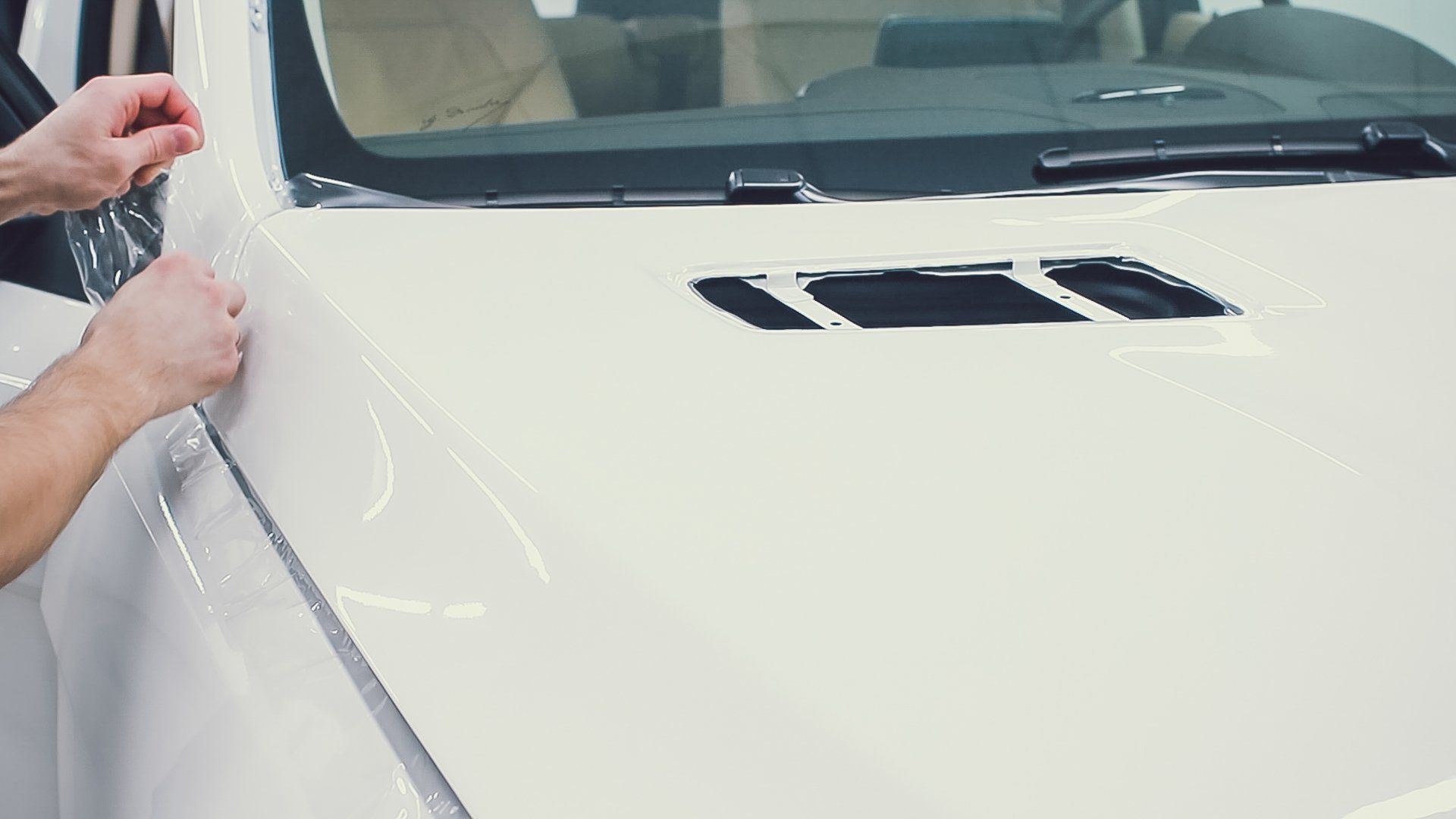
By Admin
•
May 8, 2019
The paint job on your car or truck is a valuable investment. It not only makes the vehicle look good, but it protects from things like rust and chips. So how can you protect your paint so that it protects your car? For many vehicle owners, the answer is a protective coating. This coating is available in both film and ceramic coating. What is the difference? And which is right for you? Here are some answers to get you started. What Is Paint Protection Film? Paint protection film (PPF) is a thin, clear film placed over the vehicle's surface. Originally designed for the military, it serves as a physical barrier between your car's paint and the elements it drives in. It's often referred to as a clear bra, although you can have as much or as little of your car as you wish covered by the film. Paint protection film has a certain amount of self-healing qualities that can even reduce the appearance of scratches and return the film to its original shape after small dents are fixed. Along with protection from chemical stains (things like bird droppings, for instance), this healing tendency can help keep the car freer of damage. What Is Ceramic Coating? Ceramic coating is an invisible liquid polymer that is spread on the vehicle's surface to give protection from damage and make cleaning easier. Ceramic coating is a newer product than PPF and is often less expensive. However, it often falls short of expectations when car owners expect total scratch protection - as is often touted by manufacturers. Think of it more as scratch resistance, which may be enough for lighter-used vehicles. Ceramic coating is excellent for those who want to have an easier time cleaning the vehicle and keeping it clean. The coating is hydrophobic, meaning that it repels water and dirt. And due to the quality prep process as well as the coating itself, your car will usually appear glossier and newer. Which Is Right for You? Although the processes for application are different, vehicle owners generally approach them in the same way. The car should be thoroughly cleaned and often polished. Any imperfections would be permanently embedded in both the coating and the film, so you want everything as shiny, clean, and streak-free as possible. Ceramic coating and PPF both have their attractions, and the right choice depends on your goals and how you use the vehicle. A daily driver that spends a lot of time on the freeway, for instance, faces a lot of rock chips and chemical staining. In this case, paint protection film is usually the best choice for its protection from physical injury. On the other hand, if you love a clean and shiny car but don't have a way to garage it regularly, a ceramic coating can do wonders for its appearance and security from those overhead birds in the trees. If you need a car that looks great, such as for entertaining clients, a coating might be the way to go as well. Largely, PPF offers longer-term protection from a larger variety of road challenges, while ceramic coating gives an improved appearance on a daily basis. Some owners prefer to use both to achieve higher protection, counting on each form to do its primary function complemented by the other. What Should You Do Next? For help determining the right measures for your particular vehicle, consult with a car protection specialist in you r area. At X-Pert Tint and Auto Alarms , we offer a variety of services to give your vehicle a fighting chance against dirt, debris, rocks, and accidents. Call today to make an appointment to learn more.
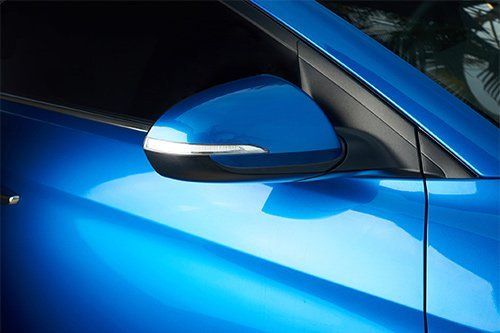
By Admin
•
March 10, 2019
When you have a brand new car with a shiny new metallic paint job, you want it to look its best for a long time. However, a metallic paint job can fade and oxide quickly if you don't take care of it. Repainting or repairing this type of paint can also be very difficult and expensive, so the effort to keep it in good shape has financial benefits. Here is more information about metallic paints and how you can keep them from deteriorating too quickly. What Is the Difference Between Metallic and Other Colors Car paints are applied in a variety of ways to give a distinct finished look. Consider four types of car color applications that are used in most cars today. Solid Color Solid colors are usually a basic color like white, black, red, or blue, which is covered with a protective lacquer layer. In recent times, it's more common to use what is known as a two-pack paint which combines both layers together. Metallic Metallic is similar to solid color paint, except that it is more layered and contains small flecks of metal to give it a bright, reflective appearance. A separate protective clear coat is often applied over the base paint. Pearlescent Pearlescent is similar to metallic, except that it uses ceramic flakes, or mica, instead of metal flakes. The mica gives the appearance of added depth and a rich color. Matte Finish Matte finishes are an uncommon, modern look where the paint looks soft and dull instead of glossy. These paints are combined with a flattening solution to give this type of finish its unique appearance. How and Why Car Paint Oxidizes Oxidation is completely normal and is a result of oxygen interacting with your car's paint, which will cause the paint to break down. Combine this process with the sun's energy, as well as rain, and you have a destructive force. With oxidation, the top layer of paint slowly breaks down and flakes off. The longer you let it oxidize without intervention, the quicker the paint can fail. How to Care for Your Car's Metallic Paint Before you car's paint begins to oxidize, make sure you take extra steps to slow the process in its tracks. Wash Regularly Regular washing removes damaging chemicals that can break down your car's finish. Try washing at least twice a month . You can wash more often if your car is exposed to road salts, mud, and grime. Dry Softly With metallic paints especially, make sure you dry your car with a soft cloth so that you don't leave streak or swirl marks. Try to dry your car in the shade, if possible, because water can dry quickly in the sun and leave spots. Polish and Wax Polishing and waxing is extremely important for metallic paint jobs. Polish helps remove any existing oxidation as well as dirt. Follow up polishing with wax to seal and protect the paint. For best results, try to polish your car twice a year and wax your car about regularly. Protect From the Sun It's critical that you protect your car's metallic paint from the sun. Try parking in the shade, if possible. However, if you can't park in the shade, then invest in a good-quality car cover. Don't leave your car covered for extended periods, or leave it covered in the rain, as this can contribute to moisture buildup and further paint oxidation. All car paints will fade and become dull over time. However, with proper care, you can slow this process so that your car's paint job gives you a lot of pleasure over the years. If you feel that you can't keep up with the maintenance of your paint job, hire a professional detailer who can do it for you. At X-Pert Tint and Auto Alarms , we have detailed all kinds of cars, including classic cars. Call us today for an appointment.

By Admin
•
July 22, 2018
Whether you live or work in an area where car break-ins are common, you may worry that your own car could be a target for thieves. If so, use the following tips to reduce your chances of becoming a victim of theft by protecting your car from being broken into. #1: Park in Well-Lit, Well-Populated Areas The first thing you should do when trying to protect your car is to consider where you park. If you normally park in an area that has little to no lighting, the darkness will act as a cover for potential thieves. This natural cover will entice them by presenting your car as an easy target. Darkened areas are not the only places you should avoid. Even if a parking place has some lighting, your car could become a target if people rarely walk through the area. Whenever possible, select a parking place that has plenty of light with a generous amount of foot traffic. If a thief feels that they run the risk of being seen, they most likely will pass by your vehicle. #2: Remove or Hide All Valuables Once you have selected an ideal parking space with lots of lighting and foot traffic, the next thing you need to do to make your vehicle less attractive to thieves is to remove or hide all valuables. If a potential burglar walks by your car and sees your laptop, purse, or even change, they will be tempted to break in. Before you exit your car, decide what items you want to take with you. Never leave easily removable items on your seats or floorboards. Take your phone, purse, wallet, and even laptop with you, as these items are highly valuable. If you must leave anything behind in your car, hide them from plain sight. Use your glove compartment to hide small items. For flat or medium-sized packages, slide them under the seat until they are completely hidden. If you have any large packages, stow them away in your trunk. Even if a thief breaks into your car's passenger compartment, they will not likely have time to open the trunk to see what's inside. #3: Consider Tinting Your Windows You will have times when you will not be able to remove all of your valuables or even fit everything into the trunk, such as when you shop or travel out of town. If you often find that you face this scenario, consider putting tints on your windows. If your windows are tinted, the darkened glass makes it difficult for any potential thieves to see what is in your car. If they are unable to discern whether you have something valuable, they may likely pass by without breaking in. Since time is of the essence for them when burglarizing a vehicle, they may not wish to take the risk of breaking in only to find they have nothing they want to steal. #4: Install an Alarm System with a Blinking Dashboard Light Even if you follow the above tips, an ambitious thief who is willing to take an extra risk may target your car. One deterrent for this type of brazen thief is to install an alarm system that includes a blinking dashboard light. If a thief sees the blinking light on the dashboard, they will know that your car has an alarm system. They most likely will change their plans, since the triggered alarm would attract attention to them. Using the tips above can help deter thieves from breaking into your car. Contact a representative from X-Pert Tint and Auto Alarms to discuss your options for making your vehicle more secure .

By Admin
•
May 16, 2018
Regular car washes are an essential part of your vehicle maintenance routine. While a freshly washed car looks amazing, the removal of dirt and debris also helps to preserve the paint finish and other components, such as the upholstery. Yet you should be aware that using the wrong car-washing techniques does more harm than good. For example, scrubbing too hard with abrasives is a fast way to create those dreaded swirl marks on the paint. To keep your car in top condition, use these tips to avoid the most common auto detailing mistakes. Never Wash in Direct Sunlight People often prefer to wash their cars on bright, sunny days. While the sunlight does help you notice dirt easier, you must take care to avoid washing your car in an area that receives direct sun. Direct sunlight can cause the soapy water to dry before you have a chance to rinse it off. If dried-up soapy spots sit too long, they can damage the paint or result in white spots that require you to start all over again. Try to find a place that is covered by shade so that you have time to fully wash and rinse your car before it has a chance to dry. Avoid Using Harsh Soap At first glance, dish soap might seem like an ideal alternative to car wash fluid because it's usually less expensive and is formulated to cut through grease. However, the same chemicals that strip away grease from your kitchen pans are too harsh for the paint on your car. Dish detergent does not have the proper pH balance for use on car paint, and the film left behind by the soap can accelerate the oxidation process on the surface of your vehicle. Harsh detergents can also break down the protective barrier created by wax on your car and leave the paint vulnerable to further damage. Be Wary of Waterless Solutions Today, you will find many car wash solutions on the market that claim to be waterless. While these do remove dirt, they skip one of the most important parts of every car wash. Pre-rinsing your car with water before you soap it up helps to remove surface dirt that could scratch the paint as you sponge your car down. Make sure that the car soap you choose is meant to be used with water and is designed for use on auto paint. Then begin your car wash by spraying the entire body down with plain water before you move on to the next step in the process. Use Clean Towels to Dry The towels you use to dry your vehicle are just as important as the materials that you use during the washing process. Dirty or rough towels can scratch the paint. Choose microfiber towels to dry your car, and use gentle, circular motions to remove the leftover water. Choose Drive-Thru Options Carefully Drive-thru car washes are tempting when you need your vehicle washed in a hurry. Unfortunately, drive-thru car washes that are poorly maintained may have exposed brushes and spinners that can damage external components on your car and leave scratches on your paint. Remember to Detail the Interior The time involved with washing the exterior of your car may cause you to skimp on the interior. However, the dashboard, upholstery, and inside of your doors are all hot spots for dirt and stains that detract from the comfort you enjoy. Make sure to allot enough time to wipe down the interior surfaces of your car or have it professionally detailed. Often, the smallest areas, such as the cup holders, attract the most dirt, and keeping these spots clean makes your car feel brand-new. A proper car wash takes time and requires strict attention to detail. Call X-Pert Tint and Auto Alarms to arrange for professional detailing services that help preserve your car's value.

By Admin
•
May 16, 2018
When you first buy a car, it looks great and the paint is smooth and shiny. Unfortunately, weather, the sun, dirt, and road conditions can take away the shine and cause the paint to start to peel overtime. Luckily, if you are diligent, you can prevent this damage and keep the exterior of your car looking like it did when you first bought it. Washing The first thing you need to do is make sure you wash your vehicle regularly. Anytime you notice it is dirty, clean it. You should also give it a thorough cleaning once a month to get rid of oil, grime, and pollen you may not see. You should also make sure you wash the vehicle properly. Do not use any cleaning solution you happen to have in the cupboard, as the chemicals in them may corrode the paint. Use a product designed for car-washing. Also make sure the product was designed for the type of paint on your car. The information on paint type may be available from the dealership or in the car's manual. Also never use anything that is rough to wash the car. A foam applicator is a good choice when applying the cleanser. A car-washing mitt is also a good option and should be used to scrub the car. Use a silicone squeegee to remove most of the water after washing and then a soft towel to sop up any water that remains. While washing, you should also be sure to clean all the trim. This will require that you open doors, the hood, and the trunk. Make sure any product you use is designed for the material the trim is made of, which could be metal, plastic, or fiberglass, to avoid scratching it. Sealant A couple of times a year, apply a paint sealant to your vehicle. Follow the direction on the can to ensure you do not leave streaks — the best ways is often to apply the product in a circular motion. Do one section of the vehicle at a time, continuing a few minutes after the texture has changed. Paint sealant will help create a protective layer over your car paint to ensure the paint job lasts longer. Wax Just because you have applied a sealant does not mean you can skip applying wax. A good layer of wax will protect the paint from corrosive things like bird droppings and tree sap. You should apply a wax 24 hours after you applied the sealant for the best results. You can also apply wax once a month, in between sealant applications, to add a layer of protection and keep the paint shiny. For best results, use a paste wax and apply it with a soft cloth in a circular motion. Once the wax is no longer opaque, but you can still see it, it is time to buff the area with a clean cloth. Do not apply wax to the whole vehicle and then buff, it as the wax you applied first will be hard again and not buff to a shine. Electric Polishers To save time and elbow-grease, you can use an electric polisher on the car to buff the wax. However, there is a definite learning curve to using a polisher. If you have never used one, you should find something other than your car to practice on or you risk not only undoing all the hard work you did applying the sealant and wax, but also damaging the paint underneath it all. While you could take your vehicle to a car wash, the detergents and other products they use may not be the best thing for the paint. Instead, go to a professional auto detailer . Contact X-Pert Tint and Auto Alarms to have your automobile cleaned inside and out. They will make sure your car's paint looks as good as it did when you drove it off the lot.

By Admin
•
March 18, 2018
Headlights are one of the most important safety features included on vehicles, and the condition of the light covers also plays a big role in its overall appearance. Unfortunately, headlights are typically made from plastic that is vulnerable to damage from impacts with objects such as rocks and that can break down over time. While you can do your part to avoid damage to your headlights by keeping a safe following distance from other vehicles and being cautious during car care, the truth is that some damage isn't preventable. The polycarbonate plastic used to make headlights also suffers from exposure to UV rays and environmental chemicals. As you begin to put together your ultimate car care and maintenance plan, use this information to understand the important process of headlight restoration so you always see clearly on the road. Recognize the Signs of Deteriorating Headlights The headlights are one part of a vehicle that most people do not expect to get damaged. While you may need to change the bulb now and then, the majority of headlight covers can last years without needing replacement. However, minor imperfections can develop over time that make it harder for the headlights to do their job. For instance, you might notice that the plastic covers develop a hazy or cloudy appearance. This cloudiness is usually caused by oxidation or a buildup of contaminants from the air and road. Upon closer inspection, you may also notice small scratches or chips in the surface of the headlights. Blemishes such as these are caused by common hazards such as rocks thrown at your vehicle on the road, harsh scrubbing during car washes, and even just by accidentally rubbing from passersby in public parking spaces. Once the damage has become bad enough, you may also notice that your headlights are no longer as bright as they were when you first got your vehicle. Typically, lower light levels will be most noticeable at night when you need your headlights the most, and driving with them in this condition is dangerous. Know When to Choose Restoration Once your vehicle's headlights become damaged, you typically have two choices to correct the problem. You can either choose to have them replaced or arrange for headlight restoration services to make them look like new. In most cases, restoration is an option, but you may need to have the covers replaced if they have sustained major damage such as a crack that extends all of the way through and changes how the light shines . For headlights with normal cloudiness, scratches, or pitting, restoration is often the more cost-effective choice compared to a replacement that gives you similar results for improving the clarity. Owners of older model vehicles may also opt for restoration over replacement to preserve the original parts on the car. Understand the Restoration Process Once headlights have turned yellow or cloudy, the damage cannot be scrubbed away using plain old soap and water. Instead, professional car restoration technicians use a series of techniques to remove imperfections that exist just below the surface of the plastic. First, the headlights are cleaned, and any areas of the car around them are covered to protect the paint and metal. Then, special sanding equipment is used to remove discolorations and pitting from the plastic. Once the technician is satisfied with the sanding results, the headlights are polished to a gleaming shine. Cloudy and discolored headlights may look like just a cosmetic problem, but deteriorating lights are a serious safety issue that must be addressed. Our crew at X-Pert Tint and Auto Alarms is ready to restore your vehicle's headlights to their former beauty, so call us today to get started on this critical part of your car's maintenance plan.

By Admin
•
January 24, 2018
When you think about auto detailing, the idea of a clean and shiny car is likely the benefit that comes to your mind. Sure, you are on the right track, but keep in mind that the benefits of this professional service extend far beyond just aesthetics. Auto detailing services deliver several additional benefits to vehicle owners like yourself. Safer Driving Experience When a vehicle is dirty, it can serve as a significant distraction to the driver and impact their overall safety. Think about the windshield, for example. From other vehicles to imperfections on the road ahead, drivers must be able to see clearly through their windshield glass. Pollutants in the air, dirt, and grime will create a hazy-like film over the glass that obstructs your ability to see and your ability to react to any upcoming dangers. A dirty vehicle will also pose safety threats to other motorists on the road. Exterior dirt and grime can cover a car's headlights and brake lights, which will minimize the amount of illumination these fixtures can provide. When other drivers can't see you on the road, this situation creates a hazard for everyone. Aim to have your vehicle detailed at least two to three times throughout the year. However, any time you feel like the dirtiness of your car is impacting your safety, go ahead and have it cleaned. Greater Vehicle Protection It's important to look at the benefits of auto detailing in both the short and long term. Sure, the immediate benefit is that your car looks better today, but make sure you understand that detailing will also keep your car looking better in the future, particularly when it comes to the vehicle's paint. Dirt that rests on your vehicle's paint surface for an extended period of time will cause damage. Dirt often contains hard particles that scratch paint, and dirt can also cause paint etching when it combines with other elements. The result is paint that looks dull and a vehicle that is at risk for rust development; rust development that will only get worse over time. Auto detailing involves removing this buildup and protecting your paint both now and in the future. In addition to making your car look better, protecting your paint will also help boost your car's resale value and appeal since buyers view vehicles with paint damage poorly. Healthier Environment On an average day, you encounter more germs than you likely want to think about. When you stop to pump gas, hold the escalator rail on the way up to your office, or even grab a quick snack from the vending machine, your hands make contact with all types of bacteria and viruses. When you get inside your vehicle, remember that all these germs follow you. But this is just the start; there are also the germs you track in on the bottom of your shoes and even the mold starting to grow on the leftover lunch from two weeks ago that you forget about. In fact, a gear stick alone can contain more than 350 germs; germs that will affect the quality of air inside your vehicle and possibly even your health, and not in a good way. Car detailing is more than a surface cleaning. Detailing is a detailed process that includes brushing and scrubbing your mats and upholstery and wiping down your interior and exterior surfaces to help remove these hidden germs to keep you safer. Keep your car looking great while also welcoming some extra benefits with professional auto detailing services. At X-Pert Tint and Auto Alarms, we offer mobile services so that you can get your car cleaned wherever you are.
Business Hours
- Mon - Sat
- -
- Sunday
- Closed
Extended Hours Available by Appointment






Content, including images, displayed on this website is protected by copyright laws. Downloading, republication, retransmission or reproduction of content on this website is strictly prohibited. Terms of Use
| Privacy Policy
